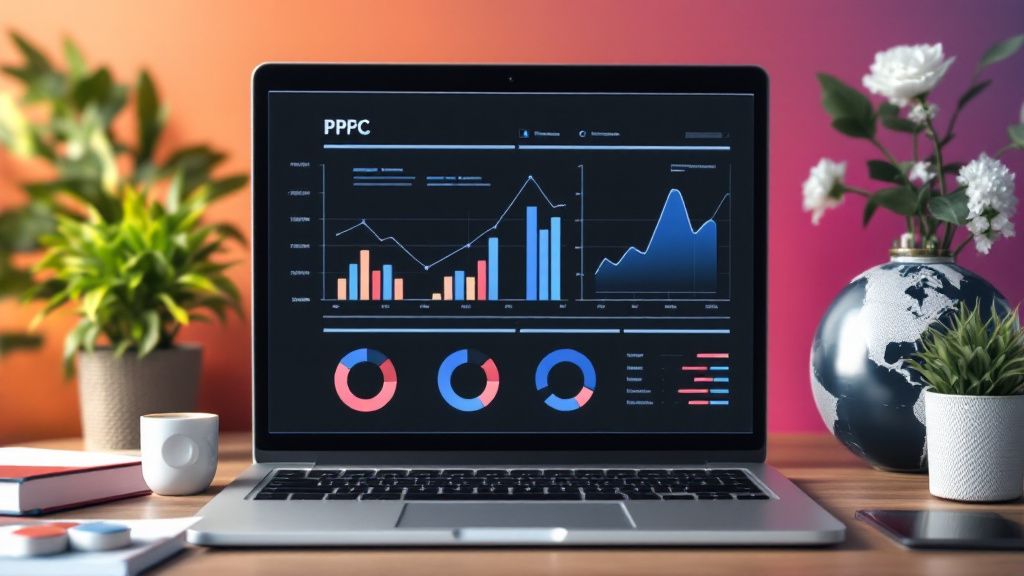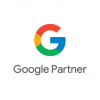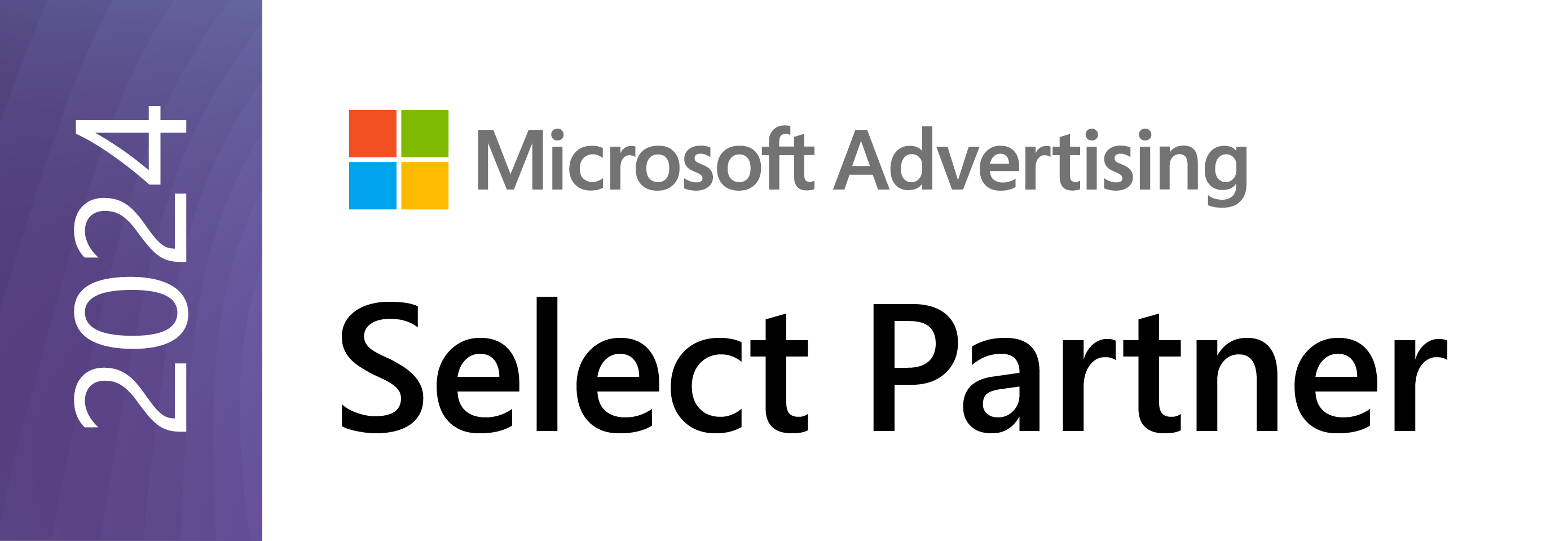
Maximizing ROI with Expert PPC Advertising Strategies
In the ever-evolving landscape of digital marketing, mastering expert PPC advertising strategies is essential for maximizing ROI. By leveraging robust PPC services, you can create targeted campaigns that drive results, whether your aim is to increase brand awareness or boost sales. Effective pay per click advertising involves a nuanced approach, prioritizing data-driven insights and continuous optimization to ensure every dollar spent contributes to achieving your goals. Through skilled PPC management, your campaigns can deliver precise targeting and adjust swiftly to market changes, ensuring optimal performance. This tailored strategy not only amplifies your reach but also enhances the efficiency and effectiveness of your marketing efforts.

Understanding the Basics of PPC Management
PPC management is the art and science of managing pay per click advertising campaigns to maximize their effectiveness. It involves selecting the right keywords, crafting compelling ad copy, and setting a budget to ensure you reach your target audience effectively. Through comprehensive PPC services, you can fine-tune your advertising strategies, achieving a balance between cost and results, all while maintaining control over your marketing spend.
One key component of PPC management is tracking the performance of your campaigns. By analyzing metrics such as click-through rates, conversion rates, and cost per acquisition, you can identify what works and what doesn’t. This data-driven approach allows you to refine your campaigns, focusing on strategies that yield the highest returns while minimizing unnecessary expenses.
In addition to ongoing optimization, testing is crucial. A/B testing different versions of your ads can provide valuable insights into what resonates with your audience. Whether it’s experimenting with headlines or images, small changes can lead to significant improvements in performance, ultimately boosting your ROI.
Looking ahead, PPC management is expected to continue evolving with advancements in AI and machine learning. These technologies promise to offer deeper insights and more precise targeting, ensuring you stay ahead in the competitive digital marketing landscape. Embracing these innovations will be key to sustaining and enhancing the success of your PPC campaigns.

Crafting Compelling Advertisements
Creating advertisements that captivate and convert requires a combination of creativity and strategic thinking. For effective PPC services, it’s crucial to understand your audience and craft messages that resonate with them. This involves using keywords naturally within your ads while ensuring the content is clear, concise, and focused on the unique value your product or service provides. Well-crafted ads can set your campaigns apart and drive more qualified traffic to your site.
Visual appeal plays a significant role in crafting compelling advertisements. Engaging images or videos can capture attention quickly, which is vital given the fast-paced digital environment. Consider incorporating strong visuals that align with your brand identity and enhance the message conveyed through your text. Pay per click advertising benefits significantly from a harmonious blend of compelling copy and striking visuals.
The current state of advertisement crafting shows a growing emphasis on personalized and interactive content. Trends indicate a shift towards ads that encourage user interaction, as these have proven to increase engagement and conversion rates. As you refine your PPC management tactics, staying informed about these evolving trends can help you adapt your strategies to maintain effectiveness in reaching and engaging your target audience.

Targeting and Retargeting Tactics
Harnessing the power of targeting and retargeting tactics in your pay per click advertising can significantly enhance your campaign’s performance. Precise targeting involves identifying and engaging with the right audience through demographic, geographic, and psychographic criteria. By understanding your audience’s preferences and behaviors, you can tailor your PPC services to deliver ads with greater relevance, increasing the likelihood of converting clicks into customers.
Retargeting is a strategy that keeps your brand at the forefront of potential customers’ minds. It allows you to reconnect with users who have already interacted with your website but have yet to convert. By strategically placing ads across various platforms, you remind these prospects of the value you offer, which can lead to higher conversion rates when they are ready to make a purchase.
One unpopular opinion about targeting and retargeting tactics suggests that retargeting can sometimes feel intrusive to consumers. While some see this as a potential drawback, it highlights the importance of striking a balance. Ensuring that your PPC management practices keep frequency in check and enhance user experience can mitigate these concerns, leading to a more favorable perception of your brand’s ads.
Behavioral targeting is another effective approach in your arsenal. By leveraging data from past user actions, you can deliver more personalized ads based on specific interests. This kind of specificity allows your PPC ads to speak directly to user needs, enhancing engagement and increasing the chances of a successful conversion.
Incorporating lookalike audiences can further expand your reach. By targeting users who share characteristics with your existing customers, you open up new opportunities for growth. This tactic, combined with a well-rounded PPC strategy, ensures you’re reaching potential customers most likely to engage with your brand, driving more valuable traffic and boosting overall campaign success.

Budgeting for PPC Advertising Success
Creating an effective budget for PPC advertising is fundamental to your marketing strategy. Starting out, it’s essential to determine how much you’re willing to spend and what you hope to achieve. Aligning your budget with your business goals ensures that your pay per click advertising spend is focused and efficient. By continually monitoring and adjusting your budget, you can optimize your PPC services, avoiding overspending while maximizing returns.
Setting realistic expectations is crucial when determining your PPC budget. It’s important to understand the cost of acquisition and the potential ROI. By analyzing past performance data and industry benchmarks, you can make informed decisions about how much to allocate. This allows you to adjust your financial strategy based on results, ensuring your campaigns remain profitable and aligned with your objectives.
In the next few years, budgeting for PPC advertising is likely to become increasingly dynamic with the integration of artificial intelligence in financial planning. AI tools have the potential to offer more precise predictions and recommendations, making budget adjustments more efficient and data-driven. Embracing these technologies can help you stay agile in a rapidly changing digital landscape and maintain a competitive edge in the market.

Choosing the Right PPC Platforms
Selecting the right PPC platforms is vital for the success of your advertising campaigns. Various platforms, like Google Ads or Facebook Ads, offer unique benefits tailored to different marketing goals. Google Ads is excellent for broad audience engagement through search and display networks, while Facebook Ads excels in targeting specific demographics and interests. Evaluating your business needs and audience reach will guide you to the platform best suited to achieve your objectives.
Understanding user behavior across platforms is crucial. According to recent studies, the way individuals interact with ads varies significantly depending on the platform. These differences highlight the importance of platform-specific strategies in PPC management, ensuring your advertisements are aligned with the user experience and expectations unique to each network. This strategic alignment can boost engagement and conversion rates significantly.
The nature of your product or service should also influence your platform choice. Visual products, for instance, might benefit more from Instagram or Pinterest, where visual storytelling is a key component of interaction. Conversely, services that rely on immediacy and local reach often perform well on platforms like Google, where search intent is a driving factor. By aligning platform selection with product characteristics, you enhance campaign relevance and effectiveness.

Monitoring PPC Performance Metrics
Monitoring key performance metrics in pay per click advertising is crucial for optimizing campaign success. Tracking metrics like click-through rate (CTR), conversion rate, and cost per acquisition allows you to evaluate the effectiveness of your PPC services. These insights enable you to make data-driven adjustments, ensuring your advertisements remain targeted and cost-effective, thereby maximizing your return on investment.
Tracing its evolution from the early 2000s, PPC metrics have transformed from basic click counts to comprehensive performance indicators. Initially focused merely on visibility and traffic, today’s metrics empower you with detailed insights into user behavior and engagement. Modern PPC management now emphasizes a nuanced understanding of these metrics, allowing for precise strategy adjustments that are both proactive and reactive in nature, optimizing each campaign for better outcomes.



